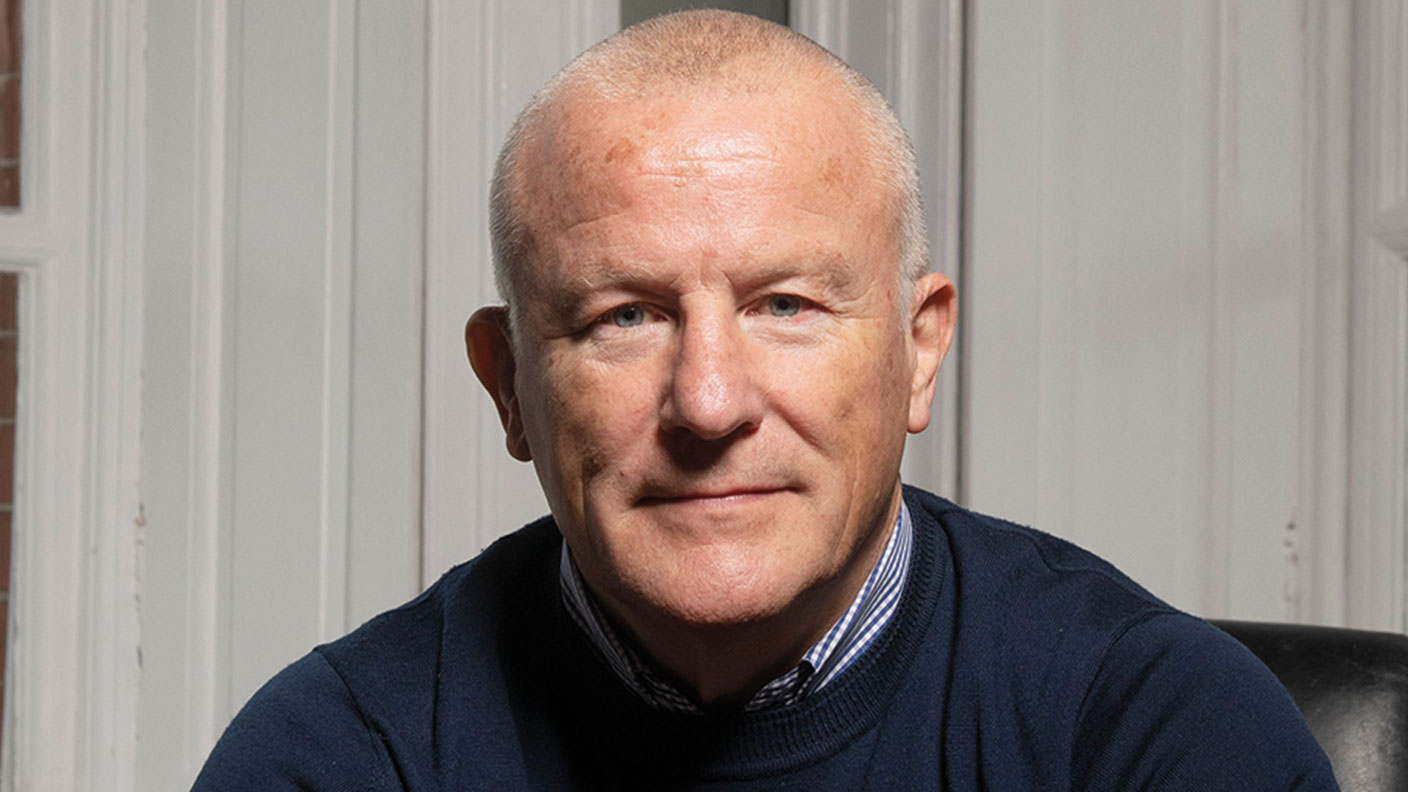The fall of the house of Woodford – and what it means for your money
Neil Woodford has been fired from his Equity Income fund, which is now being wound up. John Stepek looks at how he got into this mess, and what it means for investors.

Get the latest financial news, insights and expert analysis from our award-winning MoneyWeek team, to help you understand what really matters when it comes to your finances.
You are now subscribed
Your newsletter sign-up was successful
Want to add more newsletters?

Twice daily
MoneyWeek
Get the latest financial news, insights and expert analysis from our award-winning MoneyWeek team, to help you understand what really matters when it comes to your finances.

Four times a week
Look After My Bills
Sign up to our free money-saving newsletter, filled with the latest news and expert advice to help you find the best tips and deals for managing your bills. Start saving today!

That's it. The end of the Neil Woodford saga is in sight.
Back in June, Woodford's Equity Income fund was closed to withdrawals. The goal was to sell off the least liquid parts of his portfolio, and then re-open at a later date.
That always seemed a bit of a stretch, and this morning the inevitable happened.
MoneyWeek
Subscribe to MoneyWeek today and get your first six magazine issues absolutely FREE

Sign up to Money Morning
Don't miss the latest investment and personal finances news, market analysis, plus money-saving tips with our free twice-daily newsletter
Don't miss the latest investment and personal finances news, market analysis, plus money-saving tips with our free twice-daily newsletter
The fund isn't going to re-open it's going to be wound up, and the money returned to investors once all the assets have been sold off.
So what happens now?
How Woodford got into this mess in the first place
Here's a quick dash through the back story.
Neil Woodford was one of the brightest stars in Britain's investment firmament. He had a fantastic track record, built largely on buying tobacco and avoiding tech.
So naturally having built his reputation in large-cap income stocks when he went off on his own, he decided to invest lots of money in obscure experimental small caps.
As one of the few British fund managers with something approaching a personal brand, Woodford was able to raise a lot of money. Particularly as he was backed heavily by Hargreaves Lansdown, the UK's biggest broker.
It rapidly became apparent that Woodford's Equity Income fund was not a traditional equity income fund. Instead of big, dividend-paying stocks, it had a lot of money in small companies and even some in unlisted companies. There was a vague suggestion of a "barbell" approach a few big stakes in listed dividend payers combined with a load of long-term punts on unproven tech. Not what most of us think of as an income fund.
Anyway, at first the fund did OK. But then it began to underperform, and people started taking their money out. Here's the problem: if 90% of your fund is easy to sell, and 10% is hard to sell, which bit do you think gets sold to fund redemptions? It is, of course, the stuff that's easy to sell.
The trouble is that the "hard to sell" stuff then starts to occupy an ever-greater chunk of your portfolio. The more you have to sell to fund redemptions, the bigger that chunk becomes. And if you have a limit on the percentage of illiquid stuff that you can own, then eventually you come close to that limit. And if anyone keeping an eye on your fund knows this, then the redemption requests accelerate.
This downward spiral exacerbated by Woodford's somewhat desperate attempts to make the portfolio look more liquid than it was took hold, and in June this year, the fund was closed to withdrawals.
There were lots of mistakes made here.
The fund was too big to invest in small caps you can't pour a pint of water into a half-pint glass which was down to pure greed.
The fund was stupidly structured you do not own illiquid assets in an open-ended fund (which promises daily liquidity). This is what investment trusts are for.
And, more specific to Woodford, you should never believe your own hype.
Unfortunately, now his investors are paying the price.
What does this mean for investors with Woodford?
Clearly, when the fund was originally shuttered, Woodford had hoped that he could sell all the illiquid stuff, buy FTSE 100 stocks, and go back to running an old-fashioned equity income fund. The goal, until this morning at least, was to re-open the fund by December this year.
That was always a long shot. Even if he'd managed to reposition the portfolio, who would trust him with their money now? He'd have suffered a flood of redemptions from rightly enraged investors. So the writing was arguably on the wall from the minute the fund closed its doors and so it turns out. The fund will now be wound up in other words, everything it holds will be sold and the money returned to long-suffering investors in stages.
Woodford himself is not happy about this. "This was Link's decision and one I cannot accept, nor believe is in the long-term interests" of investors, he told the FT. But it's not his call any more he's been fired as manager of the fund.
The winding-up process is set to begin in mid-January, subject to approval from the regulator, the Financial Conduct Authority (FCA). Given that the FCA has welcomed the decision, that permission will certainly be forthcoming.
Link has appointed BlackRock Advisors to help sell the assets in the fund, and it already has a specialist broker PJT Partners helping to sell the illiquid stuff. The fund is also being renamed, as it's no longer Woodford's fund.
How much money will Woodford investors get back? At this stage it's hard to tell.
I'm sure there are analysts going through the portfolio even as I write to get a rough idea of likely haircuts, so I'll keep you up to date as and when I can.
Chartered financial planner Martin Bamford of Informed Choice has argued that investors could face a haircut of 30% to 70% of their money. Here's what he says: "The possibility of a 30-70% haircut for investors is based on my experience, the likely price of selling overvalued illiquid holdings quickly, and a forecast for the markets over the next six months.
"I want investors to be prepared for a range of outcomes, up to and including a 70% loss of their money in the fund, which I view as a worst-case scenario. Investors should factor this range of outcomes into their financial plans to understand the potential impact on achieving future goals."
In other words, plan for the worst and then if it's not as bad as that, you won't be disappointed.
What does it mean for Patient Capital, the investment trust that Woodford still manages? It's very hard to believe that the board there won't call time on him shortly too, assuming they can find anyone to take on what must surely be a toxic portfolio. This morning, they issued a statement reminding everyone that they're looking for a new manager.
But it's still not time to buy. Someone needs to come in, kick the tyres, and do a "kitchen sink" job I can believe in before I'd suggest you stick your money into that black hole.
In all, it's a classic tale of hubris meeting nemesis. There are plenty of lessons you can draw for your own investing (I go into a lot of them in my book, The Sceptical Investor).
But I still think the main one is the common sense one: always understand what you're investing in. Don't take anything on trust.
And if it's not practical to do that and it does sometimes require a lot of research then find a simple passive fund that you can wrap your head around and use that. Most of the time it'll be the better option anyway.
Get the latest financial news, insights and expert analysis from our award-winning MoneyWeek team, to help you understand what really matters when it comes to your finances.

-
 Should you buy an active ETF?
Should you buy an active ETF?ETFs are often mischaracterised as passive products, but they can be a convenient way to add active management to your portfolio
-
 Power up your pension before 5 April – easy ways to save before the tax year end
Power up your pension before 5 April – easy ways to save before the tax year endWith the end of the tax year looming, pension savers currently have a window to review and maximise what’s going into their retirement funds – we look at how
-
 Neil Woodford’s back – but has he really learned anything?
Neil Woodford’s back – but has he really learned anything?Opinion Disgraced fund manager Neil Woodford is planning a comeback. But he doesn’t seem to have learned much from his many mistakes. So why would anyone invest with him now?
-
 Neil Woodford’s back – but sometimes sorry isn’t enough
Neil Woodford’s back – but sometimes sorry isn’t enoughAdvice Neil Woodford’s funds blew up in 2019. Now he is on the comeback trail. But his apologies are unconvincing.
-
 Woodford investor? Your first payment is coming soon
Woodford investor? Your first payment is coming soonNews Private investors left stranded by the collapse of the Woodford Equity Income fund will soon be getting at least some of their money back. But they will have to wait a while longer to see how much more – if any – they will receive.
-
 Neil Woodford continues to cast a shadow over his successor at Invesco
Neil Woodford continues to cast a shadow over his successor at InvescoFeatures Mark Barnett, former star manager Neil Woodford’s successor at Invesco, has applied the same formula, and is struggling.
-
 Is it time to buy Patient Capital Trust?
Is it time to buy Patient Capital Trust?Features Neil Woodford’s Patient Capital Trust has been taken over by asset manager Schroders. The share price has surged - but should you buy in? John Stepek looks at the trust’s prospects.
-
 Neil Woodford: no silver lining for his investors
Neil Woodford: no silver lining for his investorsEditor's letter Neil Woodford made every mistake it is possible to make as a money manager. And his investors have been stiffed. But however wrong it all went, Woodford never stopped taking the fees.
-
 Woodford believed his own hype – now his investors are paying the price
Woodford believed his own hype – now his investors are paying the priceFeatures Neil Woodford was once one of the brightest stars in Britain’s investment firmament. Then he came crashing down to earth. John Stepek explains what went wrong.
-
 Woodford’s empire collapses – what happens to his investors now?
Woodford’s empire collapses – what happens to his investors now?Features With Neil Woodford getting his marching orders and his funds being shut down, John Stepek explains what it means for his former empire, and for those with money locked in.